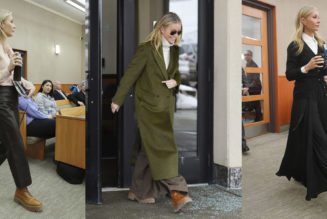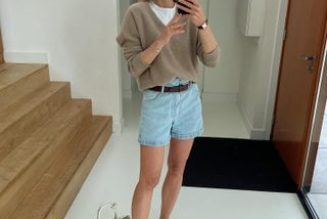
Farfetch’s chief executive José Neves is reportedly conferring with top shareholders, including Richemont and Alibaba, and JP Morgan about delisting the company, The Telegraph reported on Tuesday. A take-private deal could happen imminently as Farfetch’s stock remains under pressure, according to the report. The e-tailer’s share price has plummeted more than 80 percent since its 2018 IPO.
Details on whether Farfetch is being bought by a known entity like Richemont or a private equity firm are still unclear. Investors, however, appear optimistic about Farfetch going private. Its stock rose more than 22 percent before market close.
Farfetch declined to comment on the news that it may go private. But shortly after The Telegraph’s report on Tuesday, Farfetch announced that it will not be reporting its planned third quarter earnings that were scheduled for Wednesday.
This all comes one month after European antitrust regulators approved a deal for Farfetch to acquire a near-majority stake in its biggest rival, Richemont-owned Yoox-Net-a-Porter. It’s unclear what a delisting would mean for that tie-up, which would see Richemont sell a 47.5 percent stake in YNAP to Farfetch, with provisions for a full acquisition in the next three to five years. The deal is slated to improve Farfetch’s position in the luxury e-commerce sector, potentially adding over $3 billion in gross merchandise volume to its marketplace by having access to the brands sold on Yoox-Net-a-Porter, which will also sell their products on Farfetch.
Since its IPO five years ago, the company has been in a financial decline after most of its expansion plans failed to beef up its business.
In the past year, Farfetch has experienced a drop in sales on its shopping platform amid a broader luxury slowdown. The company’s revenue fell 1 percent year over year to $572 million in the second quarter and reduced its full-year forecast by $500 million.
Many of the Farfetch’s business divisions are flailing. The company’s brand incubator New Guards Group, which includes the licence to Off-White and Palm Angels, reported a 40 percent year-over-year drop in revenue in the second quarter. In August, Farfetch closed its beauty division after it struggled to attract shoppers, and is now selling off Violet Grey, the cosmetics retailer it acquired in January 2022 for $50 million to turbocharge its beauty ambitions.
Some investors have maintained that Farfetch should concentrate on reviving growth in its core marketplace, where it sells goods directly from luxury boutiques around the world, and scales back its white-label e-commerce services and offload its New Guards Group unit.
Farfetch’s cash position has also been challenged. It has over $1 billion worth of debt in term loans and convertible notes, which a potential acquirer would have to absorb. Still, Farfetch has improved its losses in recent quarters. In addition to sunsetting its beauty arm, the company has made consistent layoffs this year. In the second quarter of the year, it reported adjusted losses before interest, taxes, depreciation and amortisation of $31 million in the second quarter, from a $24 million loss during the same period last year.
Taking the company private would allow Farfetch to continue salvaging its bottom line without the prying eyes of institutional investors.
“This could be a sign that José [Neves] thinks that he can run the business with less scrutiny,” said Tom Nikic, an equity research analyst at Wedbush Securities. “The [company’s] stock hasn’t been rewarded for its efforts thus far.”
If Farfetch does in fact go private, it will be the latest publicly-traded e-commerce company to do so in the past year. Mattress seller Casper was acquired by private equity firm Duration Capital Management in January 2022, while peer-to-peer secondhand marketplace Poshmark was acquired by Korean e-commerce giant Naver in October 2022 for $1.2 billion.
Learn more:
The London-based luxury e-commerce giant, which has lost 97 percent of its market value in the last two years, has suffered from lack of focus, writes Imran Amed.









